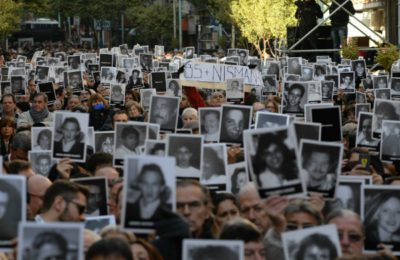 Last Sunday found me in Frankfurt, Germany in a convention surrounded by thousands of Israel supporters. There were Jews and gentiles. Christians who support Israel out of evangelical reasons and Christians who just happen to love Israel. There were Europeans and Israelis – and at least one American!
Last Sunday found me in Frankfurt, Germany in a convention surrounded by thousands of Israel supporters. There were Jews and gentiles. Christians who support Israel out of evangelical reasons and Christians who just happen to love Israel. There were Europeans and Israelis – and at least one American!
And there were personalities, among them Israel’s deputy foreign minister, Danny Ayalon and the “son of Hamas”, Mosab Hassan Yousef.
Another personality there, one known well locally, was Herb Keinon, Denver native and Jerusalem Post writer, who served on a panel entitled “Iran, Unrest in the Middle East, Israel’s Security and European Politics”. Whew! An ambitious goal, to cover all of that in one breakout session, but the participants came close.
Yossi Melman, journalist, Haaretz:
The most striking point of Melman’s talk was his analogy of Iran to the Soviet Union ca. 1985, “rotting from the inside but projecting a strong image to the outside”. He talked about the rampant unemployment, high rates of prostitution, and officially 5 million drug addicts.
Of course a vitally important difference is that the Soviet Union had a leader like Gorbachev, a rare politician willing to sacrifice his own career for the good of his people. Iran has Ahmadinejad, and of deeper concern, Khameni. And though the president’s days may be numbered – he can’t stand for reelection in 2013 – unless the Ayatollah is on board, it remains unclear how dissatisfaction will translate into change on the ground.
Herb Keinon, journalist, Jerusalem Post:
Keinon’s not sure from exactly where it stems – perhaps a Jewish thing, he posits – but the Jewish and pro-Israel community psyches itself out. We expect disaster. We blow things up.
Case in point: UDI, or unilateral declaration of independence. He takes us back a few months, how we collectively as a community were so frightened of September, when Abbas would be going to the UN. Barak set the tone, says Keinon, when he stated that the diplomatic tsunami Israel was facing in 2011 would culminate in September with the UN bid.
In reality, the Palestinians have run into difficulty getting a majority of security council members to back their bid and, according to Keinon, what should have been a moral victory – support of security council forcing a US veto – has become a kind of moral defeat, regardless of the final outcome. Keinon, who pens a column for the Jerusalem Post, attributes some of this to Israel’s diplomatic efforts, which he says is underrated and is in fact surprisingly effective.
What Israel can improve, however, is defining its goals. Quoting the legendary Yogi Berra – “If you don’t know where you’re going, you might not get there” – Keinon says that Israel needs to define its borders and what it aims to gain from negotiations. While some flexibility is good, “it depends” is not an effective policy.
Emanuele Ottolenghi, senior fellow, Foundation for Defense of Democracies:
Europe and the Western world are dealing with serious foreign policy questions at a time of great structural weakness. The backdrop to the Arab Spring is economic meltdown in Greece and other parts of Europe, and resources are spread thin and limited; not much is left over for dealing with the tinpot dictators of the Middle East.
Nevertheless, the West continues to dole out aid, and Ottolenghi stresses the importance of accountability with regards to the aid flowing to Arab Spring countries. Conditions should be attached. We cannot just assume the various transitional governments are pursuing democracies, we must set goalposts which we then evaluate: freedom of speech, women’s rights, commitment to peace, which for Ottolenghi includes normalized relations with Israel, something Tunisia’s post-revolutionary constitution may not accept.
One last tip from the debonair Italian: How should Israel advocates make the case for Israel? By spotlighting its enemies. Instead of feeling defensive, root out the stories about what’s happening in Iran or Saudi. It’s not a particularly difficult task and we may just find a few friends in the process.












